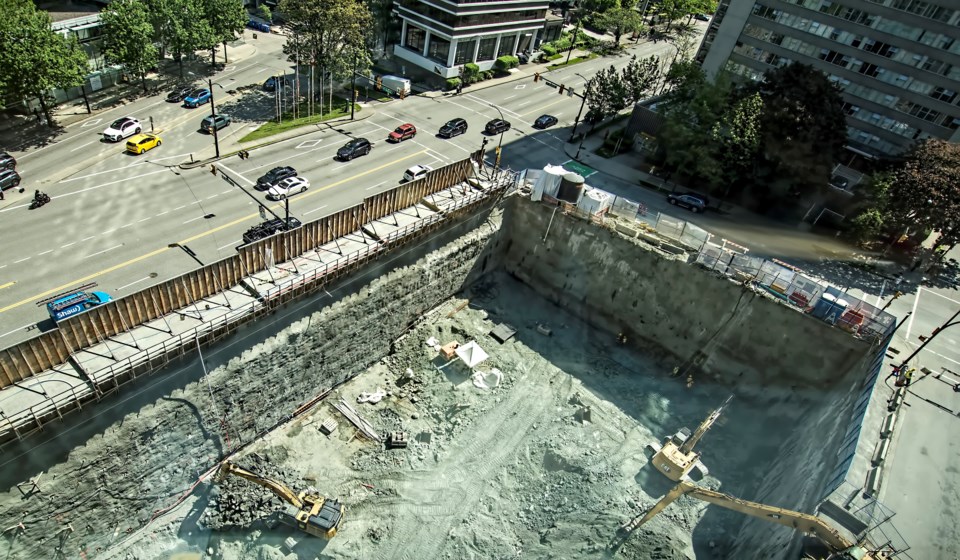When it comes to the City of Vancouver’s housing approval backlog, stakeholders admit there is no “silver bullet.”
But recent changes to address the issue demonstrate a willingness to fix the problem in the eyes of housing and construction professionals.
On May 30, Vancouver city council voted to expedite approvals of development and rezoning permits for housing projects that will provide the most units, and to eliminate the policy enquiry process (PEP).
The intended result is a system that will approve housing faster. However, underlying issues remain. The complexity of the system, the absence of clear goals and a culture that appears to restrict new building rather than facilitate it will continue to frustrate the delivery of housing in the city, according to those who spoke to Glacier Media.
Council’s motion allows for the expedition of projects with the “greatest amount of net new housing units across the entire housing continuum, for all housing types and tenures,” according to council meeting minutes.
Meanwhile, the PEP process was intended projects that don’t match existing zoning, bylaws or policies. The city described it as a “time-consuming stage” of the housing development process that will now be discontinued.
“The council of the day seems to be on track to improve processing times and accelerate approvals. That’s really positive, but my issue is that while we’re making commitments to accelerate processing, we’re not fixing the underlying problem,” said Hani Lammam, executive vice-president at Cressey Development Group.
Lammam says there is overlap between what are currently distinct processes: Submitting a letter of inquiry, applying for rezoning applications and approvals, and applying for development and building permits.
“We’ve just added layers to the process and time delay for really the same thing.… There’s multiple processes that we have to go through only to inevitably end up at the same place,” Lammam said.
While Lammam said he sees the need to deliver more housing in a timely manner, he said he doesn’t believe that the prioritization of major projects will speed things up.
“Big projects are really complicated, they take forever and they’re very difficult to finance,” he said. “It can take four to five years to build a project of this scale, where I can turn around and deliver a six-storey wood-frame building in 18 months. So why don’t we process all of it, so that we can deliver some units quickly?”
In a press release, Vancouver Mayor Ken Sim described the recent motions as a “significant step forward” to deliver more housing in the city.
“These decisions are about better-focusing staff resources towards the delivery of more housing units across the City of Vancouver – they will have the potential to shave months off of wait times for certain projects while minimizing the risk of displacement. While there is still work ahead of us, the actions council took last week mean that we are another step closer towards building more housing faster,” he said in a statement to Glacier Media.
For Jake Fry, CEO of Smallworks Studios and Laneway Housing Inc., which specializes in laneway and infill housing, the underlying issue in Vancouver is a focus on procedure rather than the goal.
“While there is movement to start looking at new housing initiatives, we’re finding it’s gonna need a much more facilitative approach and it needs better alignment between departments,” Fry said.
“There needs to be a willingness to really step back from a lot-by-lot analysis and take an approach where we’re able to produce and focus on what is the outcome of the housing, rather than what the process to get that housing is.”
Both the province and many municipalities have made it clear that the goal is to build the greatest amount of housing, as fast as possible, said Ron Rapp, CEO of the Homebuilders Association Vancouver.
“All of these initiatives, whether it be directly from council, coming down from the province or from leadership positions, the direction has to be put forward to staff to embrace that it’s time for a culture of ‘Yes,’ as opposed to a culture of ‘No.’ That is to say, let’s find a way to make things work, instead of finding ways to inhibit or obstruct them as the case may be,” Rapp said.
Fry echoed this, adding that when a project goes in for assessment, the approach seems to be “what is wrong with this,” rather than “how can we make it better.”
Rapp said the discontinuation of the PEP process will allow city staff to devote their time to projects that will “manifest real results.” While he acknowledges that this may discourage the construction of projects that feature innovative and creative solutions, the extent of the backlog warrants changes like these.
“It’s appropriate to provide a forum where you could look at out-of-the-box thinking.…That’s to some degree what we’re missing in general here, but let’s keep it in perspective and not make that the priority,” he said.
Though the elimination of the process will refocus staff, it won’t necessarily speed up the approval process for typical housing projects that are based on existing zoning or building policies.
“The vast majority of projects should not be impacted by that at all. It was a very small minority of projects that had to go through the [PEP] process and it was only because they were atypical,” said Lammam.




